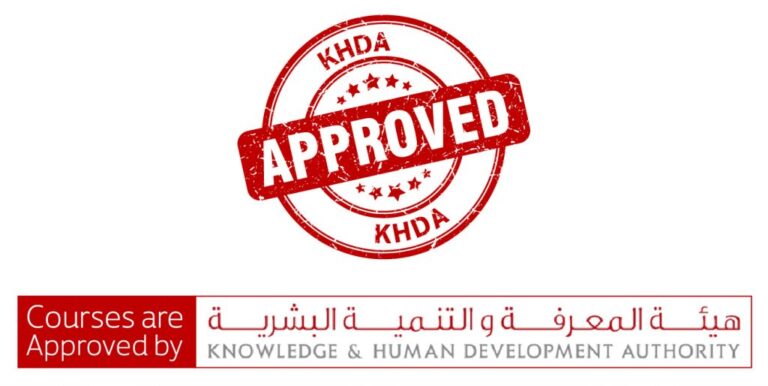Human resources practitioners are faced with unprecedented challenges in meeting the needs of competitive business organizations. To meet these challenges successfully requires up-to-date information and current perspectives on the strategic alignment of the HR function with corporate objectives. The professional designation in HRM offers a current, comprehensive and practical grounding in the major areas required of a personnel generalist. All courses are conveniently scheduled and offer direct skills practice along with expert guidance from instructors who are practitioners or consultants in the field.
This course takes an in-depth look at human behavior in organizations and the dynamics that people produce as they work independently or in groups. It strives toward development of greater understanding of personal, interpersonal and organizational relationships and thoughtful examination of issues that influence the management of people in complex and evolving organizations. Incorporating current management theory and research, the course focuses on factors that influence employee satisfaction and improve firm performance. Wide range of topics is covered at different levels of analysis: individual (perception, personality, attitudes, values, and motivation), group (decision making, leadership, power and politics, conflict and negotiation) and organizational (culture, structure, change).
This course provides participants with an in-depth coverage of the HR Planning, recruitment and selection functions within organizations. The course is designed for future and practicing human resource professionals, as well as employees and managers. It deals with the processes that organizations undertake to effectively attract, hire, and retain employees necessary to accomplish their pre-established business objectives. Combining both academic and applied perspectives, it is designed to cover each step in the staffing process sequentially, beginning with recruitment (external and internal) and ending with job offers. In between those topics, the course examines selection strategies and practices (measurement, external screening and testing, internal selection), employment (decision making and final match).
This course is designed to introduce students to performance management, a continuous process of identifying, measuring and developing the performance of individuals and teams and aligning performance with the strategic goals of the organization. Performance management systems are described as key tools to transform people’s talent and motivation into a strategic organizational advantage. Students will become familiar with theory in the area, and obtain some applied performance management skills. The course is divided in three parts and topics include such issues as strategic performance management considerations (performance management in context, linking performance management process to strategic planning), performance system implementation (establishing performance objectives, choosing a measurement approach, measuring performance, gathering performance information, implementing a performance management system), and employee development (performance management skills, coaching, reward systems, legal issues).
Rapid changes in technology and job design, along with the increasing importance of knowledge-based organizations, make training and HR development an increasingly important topic in HRM. This highly interactive course focuses on strategies for assessing, designing and implementing training and HR development efforts that positively impact the performance of the individuals and teams in the workplace. More specifically, students will learn how: to identify training and development needs through needs assessments; analyze jobs and tasks to determine training and development objectives; create appropriate training objectives; design effective training and development programs using different techniques or methods; implement a variety of different training and development activities; and evaluate training and HR development programs.
The objective of this course is to familiarize students with theory and practice of OD and Change Management. It aims at presenting OD as a viable and robust strategy for improving organizational effectiveness and enhancing the quality of life for organizational members. It familiarizes them with various interventions and applied behavioral science tools and techniques that OD consultants have in their repository. In addition, students will also learn about change management.
This course provides a survey of significant laws and regulations that affect the practice of HRM. It is based on the principle that knowledge and understanding of employment law and legal aspects of HRM facilitates promotion of a highly committed workforce, the development of practical solutions to problems arising in the workplace and effective human resources policy and procedures that comply with applicable laws. All stages of managing the HRM responsibility are covered, from employee recruitment through termination. The emphasis is on laws related to the hiring process; equal employment opportunity with respect to discrimination; occupational health and safety; the regulatory environment referring to workers’ compensation; labor relations, collective bargaining and dispute resolutions; termination of employment and severance pay; and special employment requirements for U.A.E. expatriates.
Compensating employees represents a critical human resource management practice. Without sound compensation systems, organizations cannot attract, motivate and retain the best qualified employees. Compensation policies can promote companies’ competitive advantage when they are properly aligned with strategic goals. However, compensation systems can also undermine competitive advantage when they are designed and implemented arbitrarily. This course provides a systematic study of effective management of compensation and benefits in organizations. Topics covered include strategic compensation planning, the context of compensation practice, the internal alignment (job analysis, design of job evaluation systems, compensation structures, budgets and system administration), external competitiveness (salary surveys, design of pay levels and mix, evaluation of employee benefits packages, governmental regulation of compensation), and pay-for-performance (role of performance appraisal, and administering incentive plans.
In today’s business environment that is characterized by globalization of goods, capital, and labour markets, the most important factor determining an organization’s effectiveness is the way it manages its people. People are the common element in all organizations. They create the objectives, the innovations, and the accomplishments for which organizations are praised. However, this would not be achieved unless the organization is able to create constructive employee relations and manage organizational risk successfully. This course provides a basic knowledge of the key aspects of managing employee relations and organizational risks. Topics covered in the course include corporate culture, friendly work environment, HR’s roles in creating constructive work environment, importance of employee involvement, assessing employee attitudes, safety, health, and security.


The individual must have minimum requirements to attend the course:
Total 95 hours (approx. 3 to 4 Months), classes are scheduled twice a week on one weekday from 6:30 p.m. to 9:30 p.m. and Saturday 10:00 a.m. – 10:00p.m.
